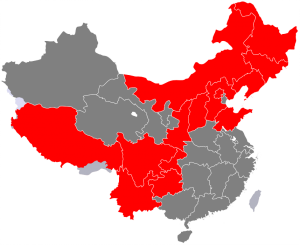Zinc, Selenium and the Immune System
Zinc and selenium are important micronutrients required for the immune system to function effectively along with vitamins A, C, E, B6, B12, C, D, E and folic acid and the trace elements iron and copper. 1
Selenium is needed for the proper functioning of neutrophils, macrophages, natural killer (NK) cells, T lymphocytes and some other immune mechanisms.
Low zinc ion bioavailability results in limited immunoresistance to infection in ageing. Zinc supplementation of food should be adjusted owing to the great variability in habitat conditions, health status and dietary requirements. 2

Zinc and selenium are two minerals that receive much attention in the popular press. The availability of both minerals depend upon the quality of the soil. In China, there is a broad band of deficient and low selenium soils in the middle of the country with a very high selenium area in a narrow coastal band in the south-east and a broader area in the north-west. The deficient selenium areas have a selenium intake of 7 – 11 μg /day compared with 750 – 4990 μg / day in the high intake areas. The accompanying map is province based and gives a broad indication only of the state of the Chinese soils.
The soil content of selenium has a marked impact on health for both deficient and high areas of intake. New Zealand and Europe have a relative low selenium soils with Venezuela and parts of USA having a much higher content.
As a result, foods grown in these soils very greatly in selenium content. Garlic, mushrooms, broccoli and Brazil nuts can be exceptional good sources of selenium if grown in the right conditions.
Best sources of selenium are fish, organ and muscle meat, whole cereals and grains and dairy products. 3
My personal experience
I take additional zinc in the form of drops. I also was eating one Brazil nut a day. A pathology test for serum zinc revealed adequate zinc intake. Fortunately, the pathology laboratory also performed a selenium test which revealed an abnormally high level of selenium of 2.11 μmol / L. The lactate dehydrogenase (LD or LDH) test is a liver function test. It is released with apoptosis (programmed cell death) and necrosis (premature cell death). The result was 360 U / L with a reference range of 120 – 250 U / L.
Elevated lactate dehydrogenase usually indicates tissue damage.
Discontinuing Brazil nuts for a month resulted in a normal LD result. I then ate one Brazil nut a week. After one month, the LD result was returned to the previous high value.
One month later, without Brazil nuts, the LD result was once again within the reference range.
There are a number of recipes that can be found on the internet on health sites recommending a cup of Brazil nuts or 10 Brazil nuts daily in a smoothie.
For the majority of people, low selenium intake is not a major issue. Whole-grains provide provide a more than adequate supply for vegans.
A serum selenium test shows a short-term status of selenium whilst red blood cell selenium reflects a long-term status.
Before consuming large amounts of selenium in foods or supplements, it is important to know the true status of your selenium.
Last updated on Friday 2 December 2022 at 21:04 by administrators
Footnotes
- Maggini, S. et al. (2007) Selected vitamins and trace elements support immune function by strengthening epithelial barriers and cellular and humoral immune responses. British Journal of Nutrition. 98 (S1), S29–S35.
- Ferencík, M. & Ebringer, L. (2003) Modulatory effects of selenium and zinc on the immune system. Folia microbiologica. 48 (3), 417–426.
- Mann, J. & Truswell, A. S. (eds.) (2017) Essentials of Human Nutrition. Fifth Edition. London: Oxford University Press.





